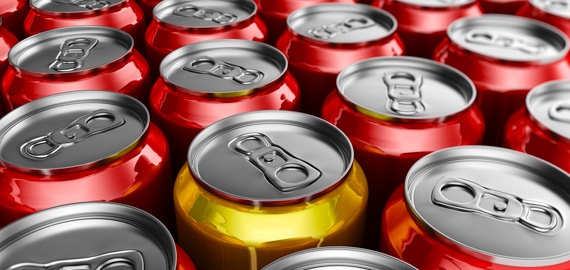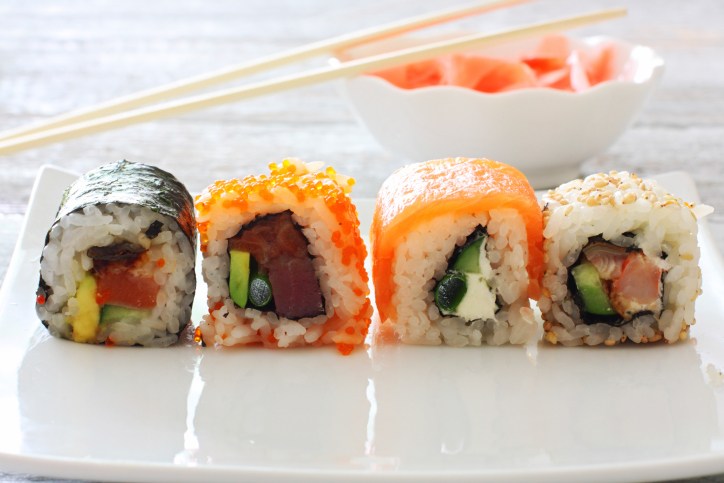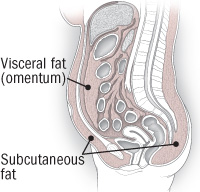Is High Fructose Corn Syrup Worse Than Sugar?

(HealthCastle.com) People have been saying sugar is sugar, so it doesn't matter whether it's natural or processed. It turns out they may have to change their view.
New Studies on High Fructose Corn Syrup
As research continues, recent studies have revealed new concerns about the effect of using high fructose corn syrup as a sweetener. In a 2011 University of California, Davis study, researchers compared the effects of feeding healthy young volunteers the equivalent of 25% of their daily energy requirement in glucose, fructose, or high fructose corn syrup-sweetened beverages. After only two weeks, they found that consumption of fructose and high fructose corn syrup increased the risk factors for cardiovascular disease: higher LDL cholesterol, triglycerides, and apolipoprotein B, which is involved in plaque formation in blood vessels. These risk factors did not increase in study participants who consumed glucose.
Another 2010 study out of Princeton University found that rats drinking water sweetened with high fructose corn syrup gained dramatically more weight, abdominal fat, and triglycerides than rats fed water sweetened with table sugar, even when their overall caloric intake from both food and drinks was equal.
High Fructose Corn Syrup vs. Table Sugar
 Let's first clarify one thing: both table sugar (sucrose) and high fructose corn syrup contain glucose and fructose. The difference is in the percentage of glucose and fructose found in a given serving of each sweetener. Table sugar is 50% fructose and 50% glucose, while the high fructose corn syrup used in soft drinks typically has 55% fructose and 42% glucose. Both glucose and fructose are absorbed directly into the bloodstream, but the fructose in table sugar requires one extra metabolic step to unbind from the glucose molecule, while the fructose in high fructose corn syrup is "free" and is immediately available for absorption.
Let's first clarify one thing: both table sugar (sucrose) and high fructose corn syrup contain glucose and fructose. The difference is in the percentage of glucose and fructose found in a given serving of each sweetener. Table sugar is 50% fructose and 50% glucose, while the high fructose corn syrup used in soft drinks typically has 55% fructose and 42% glucose. Both glucose and fructose are absorbed directly into the bloodstream, but the fructose in table sugar requires one extra metabolic step to unbind from the glucose molecule, while the fructose in high fructose corn syrup is "free" and is immediately available for absorption.
Glucose and fructose are also found as naturally occurring sugars in fruits, vegetables and natural sweeteners such as honey, agave nectar, or maple syrup.
HFCS: Not Just in Soda
The collective consumption of table sugar has decreased as the consumption of high fructose corn syrup has increased. However, our collective intake of total sugars has increased. Because high fructose corn syrup is cheaper than table sugar, it is used as a sweetener in more than just soda, finding its way into bread, yogurt, salad dressing, breakfast cereal, ketchup, and numerous brands of ice cream, jam, and commercial baked goods.
The Bottom Line: Minimize All Added Sugars, HFCS or Not
While emerging research suggests high consumption of fructose may have different health effects on the body, in general, we can all be better off minimizing our total sugar intake from highly refined sources.
Be skeptical of things that come in foil wraps or boxes and can sit on store shelves indefinitely, even when the label proclaims "made with real fruits" or "made with real vegetables."
Don't rely only on the Nutrition Facts label - it lumps naturally occuring sugar and added sugar together. For example, natural lactose in milk is counted towards the "sugars" amount.
Instead, check the ingredient list for any of the following terms that signify sugar sources:
- high fructose corn syrup (glucose-fructose in Canada)
- white sugar, brown sugar
- corn syrup, corn syrup solids
- raw sugar
- malt syrup, maple syrup, brown rice syrup
- dehydrated cane sugar, cane sugar
- pancake syrup
- fructose sweetener, liquid fructose
- honey
- molasses
- anhydrous dextrose, crystal dextrose
-
The Secrets About Weight Loss Diets That The Weight Loss Industry Is Keeping From You
Do you know that all weight loss diets make you fat? Sorry, but thats
-
Do You Know When Weight Loss Sends Negative Signals?
Everyone wants to have those highly revered and perfectly adored body
-
How To Get Thin Quickly And Easy
How to get thin quickly and easy is definitely the number one issue th
-
Dangers of Weight Loss Using Certain Methods
So you wish to lose weight. There is a w
-
What Can You Do After Your Drastic Weight Loss?
Since people nowadays are so self-conscious, they resort to a lot opti
-
Work! How To Use Waist Beads For Weight Control
Waist Beads are an excellent tool for women to feel mor
- DON'T MISS
- How To Get Skinny ?Lose 6-8 Pounds in 10 Days Or Less With a Little Known Supplement!
- Begin the Year (or Month) with A Cleanse!
- Freshen Up Your Weight Loss Routine With These Tips
- Expert Advice To Lose Weight Really Fast
- How To Design The Perfect Diet
- What Are The Different Weight Loss Surgeries And The Associated Risks Involved With Each?
- THE NEED FOR COMMITMENT
- Why The Majority Of Teens Are Obese And What Parents Can Do About It
- Government Against Diets
- Is Zone Diet A Fad




